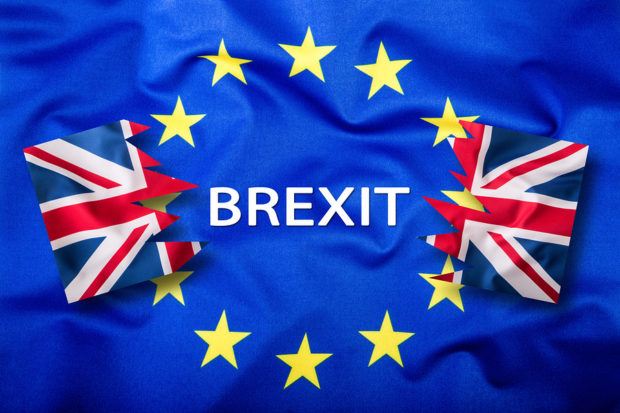The European Union’s chief Brexit negotiator said he’s ready to intensify the pace of talks with the U.K, as the window of opportunity to begin trade talks this year is closing.
“I’m ready to speed up negotiations,” Michel Barnier told reporters in the Slovak capital Bratislava on Tuesday. “We have proposed three dates, three weeks of new rounds of negotiations. In the next few hours or days, we’re working with the British delegation to find the right dates.”
Almost two weeks after German Chancellor Angela Merkel’s warm words at an October summit no date has been fixed for policy negotiations to resume, with confusion on both sides as to where the other stands and contingency planning well underway. In London, the focus of Cabinet discussions was on the planning for leaving rather than getting a deal from smooth separation.
The EU is puzzled about the U.K.’s approach in the negotiations, according to a senior official from a core European government. The U.K. has brought no new elements to the table, that would allow to settle the separation bill, the official said, asking not to be named, in line with policy.
U.K. Brexit Secretary David Davis has proposed moving the talks away from the current pattern of four-day sessions held once a month in Brussels, a person familiar with the U.K. position said Monday. The British side, which has engaged in some shuttle diplomacy since the summit, is keen to pivot the discussion to future trade.
But the EU first want the contours of a financial settlement delineated. Only when European leaders such as Germany’s Merkel agree that the U.K. and EU have made “sufficient progress” on the divorce terms will they allow talks to move on to post-Brexit trade. Prime Minister Theresa May’s next chance to win this approval is at the EU summit on Dec. 14.
Spinning Wheels
Even though the EU welcomed May’s Florence back in September, in which the British premier promised to honor the U.K’s liabilities stemming from its membership in the bloc, the EU wants the commitments spelled out in detail in a binding document, the European official said.
The British government has so far been resisting such calls, insisting instead that the exact methodology for calculating the bill can only be agreed once the future trade relationship is also discussed and agreed.
Apart from the exit bill, the EU says that it still needs more clarifications from the U.K. on the role of the European Court of Justice in guaranteeing the rights of citizens stemming from the withdrawal agreement, and it still waits for concrete proposals from London on how to avoid a hard border in Ireland.
Meanwhile, the U.K. government’s preparatory work for Brexit “has seen a significant acceleration in recent months,” May’s spokesman, James Slack, said after Davis briefed other ministers Tuesday during a cabinet meeting in London devoted to the issue.
3,000 Jobs
Almost 3,000 new jobs within the government have been created to support Brexit planning, including the recruitment of 300 additional lawyers, Slack said. The U.K. tax agency will take on as many as 5,000 extra staff next year, while departments are drawing up 300 separate programs for Brexit.
“Each of these plans prepares the country for the range of negotiated outcomes and a ‘no deal’ scenario for a policy area affected by the U.K. leaving the EU,” Slack said. “The plans set out detailed delivery timelines including, for example, to recruit and train new staff; to design and procure IT systems; and to deliver the necessary legislative and regulatory changes.”
May’s deputy, First Secretary of State Damian Green, will head a new Brexit and trade cabinet sub-committee, with a focus on domestic preparedness and legislation.





















 AI Got Beat by Traditional Models in Forecasting NYC’s Blizzard
AI Got Beat by Traditional Models in Forecasting NYC’s Blizzard  Large Scale Cargo Ring Busted in LA, $5M Recovered
Large Scale Cargo Ring Busted in LA, $5M Recovered  Teens’ First Year on the Road Most Deadly
Teens’ First Year on the Road Most Deadly  Focus on Ski Guides After Deadly California Avalanche Could Lead to Criminal Charges, Civil Suits
Focus on Ski Guides After Deadly California Avalanche Could Lead to Criminal Charges, Civil Suits 






